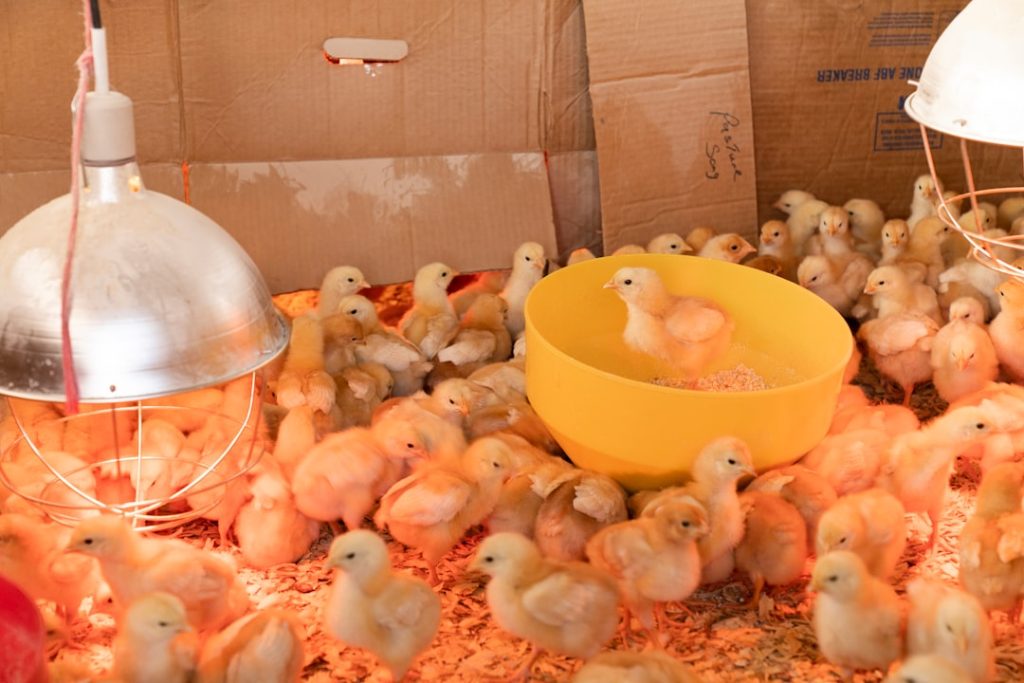Keeping chickens has been a practice that dates back thousands of years. The domestication of chickens is believed to have originated in Southeast Asia around 6000 BC. From there, chickens spread to other parts of the world, becoming an integral part of many cultures and cuisines. Today, people keep chickens for a variety of reasons, including a sustainable source of fresh eggs and meat, as well as for educational purposes.
Key Takeaways
- Keeping chickens has many benefits, including fresh eggs, meat, and fertilizer.
- Before keeping chickens, it’s important to consider factors such as local laws, space, and predators.
- Building a chicken coop is essential for providing a safe and comfortable home for your chickens.
- Choosing the right breed of chicken depends on your needs and preferences, such as egg-laying ability and temperament.
- Feeding and watering chickens is relatively easy, but maintaining their health and hygiene requires regular care and attention.
Benefits of Keeping Chickens
One of the main benefits of keeping chickens is the access to fresh eggs and meat. Chickens are prolific layers, with some breeds capable of producing up to 300 eggs per year. This means that you will always have a supply of fresh eggs on hand, which can be a great cost-saving measure. Additionally, raising your own chickens for meat ensures that you know exactly where your food comes from and how it was raised.
Another benefit of keeping chickens is the fertilizer they provide for gardens. Chicken manure is rich in nitrogen, phosphorus, and potassium, making it an excellent natural fertilizer. By allowing your chickens to roam freely in your garden or by composting their manure, you can improve the health and productivity of your plants.
Chickens also provide pest control services. They are natural foragers and will eat insects, slugs, and other pests that can damage your garden. By allowing your chickens to free-range in your yard or garden, you can reduce the need for chemical pesticides.
Keeping chickens can also be a valuable educational opportunity for children. It teaches them about responsibility, animal care, and where their food comes from. Children can learn about the life cycle of chickens, from hatching eggs to caring for chicks and eventually collecting eggs. It can be a hands-on learning experience that fosters a connection with nature and promotes sustainable living.
Factors to Consider Before Keeping Chickens
Before embarking on the journey of keeping chickens, there are several factors to consider. First and foremost, it is important to check local laws and regulations regarding chicken-keeping. Some areas have restrictions on the number of chickens allowed or require permits. It is important to ensure that you are in compliance with these regulations to avoid any legal issues.
Another factor to consider is the available space and resources. Chickens require a coop for shelter and protection from predators, as well as a designated outdoor area for exercise and foraging. The size of your property will determine how many chickens you can comfortably keep. Additionally, you will need to provide food and water for your chickens, as well as bedding material for their coop.
Keeping chickens also requires a time commitment. Chickens need daily care, including feeding, watering, and cleaning their coop. They also require regular health checks and veterinary care. It is important to assess whether you have the time and resources to dedicate to the care of chickens before getting started.
Lastly, it is important to consider potential noise and odor issues. Roosters can be noisy, especially in the early morning hours when they crow. If you live in a residential area, this may not be suitable. Additionally, chicken manure can have a strong odor, especially if not properly managed. It is important to have a plan in place for managing waste and odor to ensure a pleasant living environment.
Building a Chicken Coop
Building a chicken coop is an essential part of keeping chickens. The coop provides shelter and protection from predators, as well as a place for chickens to lay their eggs. When building a chicken coop, there are several materials that you will need.
Firstly, you will need lumber for the frame of the coop. Pressure-treated lumber is recommended for its durability and resistance to rotting. You will also need plywood or other suitable material for the walls and roof of the coop.
Design considerations are also important when building a chicken coop. The coop should be well-ventilated to prevent the buildup of moisture and ammonia from chicken waste. It should also have windows or vents to allow for natural light. The coop should have nesting boxes for chickens to lay their eggs, as well as roosting bars for them to perch on at night.
When constructing a chicken coop, it is important to consider maintenance. The coop should be easy to clean and disinfect to prevent the spread of disease. It is also important to ensure that the coop is secure and predator-proof, with sturdy fencing and locks on doors and windows.
Choosing the Right Breed of Chicken
Choosing the right breed of chicken is an important decision when starting your flock. There are many different breeds to choose from, each with its own characteristics and purposes.
If you are primarily interested in egg production, there are several breeds that are known for their prolific laying abilities. Some popular egg-laying breeds include the Rhode Island Red, Leghorn, and Australorp. These breeds are known for their high egg production and can lay up to 300 eggs per year.
If you are interested in raising chickens for meat, there are also specific breeds that are bred for their meat qualities. Some popular meat breeds include the Cornish Cross and the Jersey Giant. These breeds grow quickly and have a high meat-to-bone ratio.
When choosing a breed of chicken, it is also important to consider climate and environment. Some breeds are better suited to cold climates, while others thrive in hot climates. It is important to choose a breed that is well-adapted to your specific climate to ensure the health and productivity of your flock.
Personal preferences for appearance and temperament should also be taken into consideration when choosing a breed of chicken. Some people prefer certain colors or patterns, while others prefer certain temperaments. It is important to choose a breed that you find visually appealing and that matches your desired level of interaction with the chickens.
Feeding and Watering Chickens

Feeding and watering chickens properly is essential for their health and productivity. Chickens have specific nutritional needs that must be met in order for them to thrive.
Chickens require a balanced diet that includes protein, carbohydrates, fats, vitamins, and minerals. Commercial chicken feed is formulated to meet these nutritional requirements and is available in different forms, such as pellets or crumbles. It is important to choose a feed that is appropriate for the age and purpose of your chickens.
In addition to commercial feed, chickens can also benefit from supplements and treats. Calcium supplements, such as crushed oyster shells or eggshells, can help prevent calcium deficiencies and ensure strong eggshells. Fresh fruits and vegetables can also be given as treats, providing additional vitamins and minerals.
Providing clean water is also essential for the health of chickens. Chickens require fresh, clean water at all times. Waterers should be cleaned regularly to prevent the buildup of bacteria or algae. It is also important to ensure that waterers are kept in a shaded area to prevent overheating during hot weather.
Maintaining Chicken Health and Hygiene
Maintaining the health and hygiene of your chickens is crucial for their well-being. There are several common health issues that can affect chickens, as well as preventative measures that can be taken.
One common health issue in chickens is parasites, such as mites or lice. Regularly inspecting your chickens for signs of parasites and treating them promptly can help prevent infestations. Dust baths can also help chickens naturally control parasites.
Another common health issue in chickens is respiratory diseases. Good ventilation in the coop can help prevent the buildup of ammonia from chicken waste, which can lead to respiratory issues. Regular cleaning and disinfecting of the coop can also help prevent the spread of disease.
Regular health checks and veterinary care are also important for maintaining the health of your chickens. It is important to monitor your chickens for any signs of illness or injury and seek veterinary care if necessary. Vaccinations may also be recommended to prevent certain diseases.
Cleaning and disinfecting the coop is an important part of maintaining chicken hygiene. The coop should be cleaned regularly to remove waste and prevent the buildup of bacteria or parasites. Disinfecting the coop with a suitable disinfectant can help kill any remaining bacteria or parasites.
Dealing with Common Chicken Problems
Keeping chickens comes with its fair share of challenges, including dealing with common problems that may arise. Predators are a common threat to chickens, including raccoons, foxes, and hawks. It is important to take measures to protect your chickens from predators, such as installing secure fencing and using predator-proof locks on doors and windows.
Egg-laying issues can also occur in chickens. Some hens may stop laying eggs or lay fewer eggs due to stress, illness, or age. Providing a comfortable and stress-free environment for your chickens can help encourage consistent egg production. Ensuring that your chickens have a balanced diet and access to fresh water can also help promote healthy egg-laying.
Behavioral problems can also arise in chickens, such as aggression or feather pecking. These behaviors can be caused by overcrowding, boredom, or other stressors. Providing ample space for your chickens to roam and providing enrichment activities, such as perches or toys, can help prevent these behavioral issues.
Harvesting Eggs and Meat
Harvesting eggs and meat from your chickens is a rewarding part of keeping chickens. Knowing when and how to collect eggs is important to ensure their freshness and quality. Eggs should be collected daily to prevent them from becoming dirty or damaged. They should be stored in a cool place, such as a refrigerator, until ready to use.
If you are raising chickens for meat, it is important to humanely slaughter and process them. This can be done by using a sharp knife to quickly sever the jugular vein, causing a quick and painless death. After slaughtering, the chicken should be plucked and eviscerated. It is important to follow proper food safety practices during the processing of chickens for meat.
When it comes to cooking and storing eggs and meat, there are several tips to keep in mind. Eggs should be cooked thoroughly to ensure they are safe to eat. Leftover cooked eggs should be refrigerated and consumed within a few days. Meat should be stored in the refrigerator or freezer to prevent spoilage.
Is Keeping Chickens Hard?
Keeping chickens can be a rewarding and fulfilling experience, but it does come with its challenges. The benefits of keeping chickens, such as fresh eggs and meat, fertilizer for gardens, pest control, and educational opportunities for children, make it worth the effort.
Before getting started with keeping chickens, it is important to consider factors such as local laws and regulations, available space and resources, time commitment, and potential noise and odor issues. Building a suitable chicken coop is essential for the well-being of your chickens.
Choosing the right breed of chicken is important for their productivity and suitability to your climate and environment. Feeding and watering chickens properly is crucial for their health and productivity. Regular maintenance of chicken health and hygiene is necessary to prevent common health issues.
Dealing with common chicken problems, such as predators or egg-laying issues, requires proactive measures. Harvesting eggs and meat from your chickens can be done with proper techniques and food safety practices.
In conclusion, keeping chickens requires research, planning, and dedication. It is important to seek advice from experienced chicken owners and continue learning about best practices for chicken care. With proper care and attention, keeping chickens can be a rewarding and enjoyable experience.
If you’re finding it challenging to keep chickens, you may also be interested in an article on Poultry Wizard that explores whether geese can eat chicken feed. It provides valuable insights into the dietary needs of geese and how they can be incorporated into your poultry feeding routine. Check out the article here. Additionally, if you’re looking for information on chicken coops, specifically in Grand Island, NE, Poultry Wizard has a comprehensive guide that covers everything you need to know. Discover more about chicken coop options in Grand Island here. Lastly, if you’re wondering about the ideal size of a chicken coop, Poultry Wizard has an informative article that outlines the necessary dimensions for a comfortable and spacious coop. Find out how big your coop needs to be for your chickens here.
FAQs
What are the basic requirements for keeping chickens?
To keep chickens, you need a coop or shelter, a secure outdoor area for them to roam, food and water, and bedding material. You also need to ensure that the coop is cleaned regularly to prevent the buildup of bacteria and disease.
Do chickens require a lot of maintenance?
Chickens require daily maintenance, including feeding, watering, and egg collection. They also need their coop and outdoor area cleaned regularly to prevent the buildup of bacteria and disease. However, with proper planning and organization, keeping chickens can be a manageable task.
What do chickens eat?
Chickens require a balanced diet of protein, carbohydrates, and minerals. They can eat commercial chicken feed, as well as fresh fruits and vegetables, grains, and insects. It is important to provide them with a varied diet to ensure they receive all the necessary nutrients.
Do chickens require a lot of space?
Chickens require a minimum of 2-3 square feet of indoor space per bird and 8-10 square feet of outdoor space per bird. However, more space is always better for their health and well-being.
Do chickens require a lot of attention?
Chickens do not require a lot of attention, but they do require daily care and maintenance. This includes feeding, watering, and egg collection, as well as cleaning their coop and outdoor area regularly. However, chickens are relatively low-maintenance pets compared to other animals.
Are chickens noisy?
Chickens can be noisy, especially when they are laying eggs or when they feel threatened. However, some breeds are quieter than others, and proper care and attention can help minimize noise levels. Additionally, many cities and towns have ordinances regulating the keeping of chickens, including noise levels.
Are chickens difficult to care for?
Caring for chickens requires some knowledge and effort, but it is not necessarily difficult. With proper planning and organization, keeping chickens can be a manageable task. Additionally, there are many resources available, including books, websites, and local chicken groups, to help new chicken owners learn the ropes.
Meet Walter, the feathered-friend fanatic of Florida! Nestled in the sunshine state, Walter struts through life with his feathered companions, clucking his way to happiness. With a coop that’s fancier than a five-star hotel, he’s the Don Juan of the chicken world. When he’s not teaching his hens to do the cha-cha, you’ll find him in a heated debate with his prized rooster, Sir Clucks-a-Lot. Walter’s poultry passion is no yolk; he’s the sunny-side-up guy you never knew you needed in your flock of friends!







